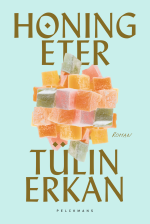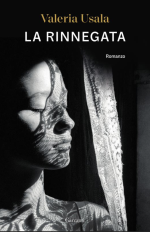View all filters
Clear

Corridoio (Peninsula)
Translated from
Dutch
to
Italian
by Matilde Soliani
Written in Dutch by Lieven Stoefs
8 minutes read
Ortensio
Written in Italian by Maurizio Amendola
3 minutes read

Il ragazzo con la testa di pesce
Translated from
Czech
to
Italian
by Marco Maria Baù
Written in Czech by Eliška Beranová
9 minutes read

Le pecore stanno bene
Translated from
Ukranian
to
Italian
by Claudia Bettiol
Written in Ukranian by Eugenia Kuznetsova
6 minutes read
Bestie voi tutte dei campi
Translated from
Spanish
to
Italian
by Ilaria Garelli
Written in Spanish by Adriana Murad Konings
8 minutes read
Cambiamento
Translated from
Polish
to
Italian
by Giulio Scremin
Written in Polish by Joanna Gierak Onoszko
10 minutes read
La tapioca
Translated from
Portugese
to
Italian
by Elisa Rossi
Written in Portugese by Daniela Costa
9 minutes read
Lieto fine
Translated from
Serbian
to
Italian
by Sara Latorre
Written in Serbian by Jasna Dimitrijević
9 minutes read
Gerico
Written in Italian by Fabrizio Allione
8 minutes read

Di me non sai
Lucio falls in love with "the boy" even before meeting him: just watching him from the window of his office is enough for him to become almost obsessed. When they finally meet, he discovers that Davide is much younger than him (still studying), and that he is elusive, unreliable, and "cruel" in the way only twenty-year-olds can be cruel.
For two months, Lucio and Davide have dinner together, have sex, go to the beach, and often sleep at Lucio's place. However, Davide does not fall in love. He continues to seek Lorenzo, the only man he (perhaps) truly loved, of whom he keeps only a pixelated photo on an old cellphone. Like many twenty-year-olds, he is also confused, wounded, and willing to nestle into the routine of always having a Coca-Cola ready for him in the refrigerator.
"Di me non sai" tells the story of a relationship lived in an opposite, incompatible way, whose nature is revealed to the reader only as the novel progresses. Alternating the perspectives of the two protagonists in short, sometimes very short chapters, Raffaele Cataldo shows the misalignment of feelings and the painful consequences it can have, the slow pace of hot Apulian summers, and the obsessive loves (present and absent) that, like wild oat seeds, cling to hair, shoes, and clothes.
Written in Italian by Raffaele Cataldo
4 minutes read

Diário de uma Portuguesa em Angola
Translated from
Portugese
to
Italian
by Elisa Rossi
Written in Portugese by Patrícia Patriarca
8 minutes read
Cambiamento: la voce delle donne
Translated from
Polish
to
Italian
by Giulio Scremin
Written in Polish by Aleksandra Lipczak
12 minutes read

Curling
Translated from
Spanish
to
Italian
by Martino Gandi
Written in Spanish by Yaiza Berrocal
9 minutes read
Punto di fuga
Translated from
Dutch
to
Italian
by Antonio De Sortis
Written in Dutch by Maud Vanhauwaert
8 minutes read

ARRIVALS / GELIȘ (Mangiamiele)
Translated from
Dutch
to
Italian
by Matilde Soliani
Written in Dutch by Tülin Erkan
7 minutes read
I panda di Ueno
Written in Italian by Arianna Giorgia Bonazzi
13 minutes read
Gli esseri viventi
Translated from
Spanish
to
Italian
by Valeria Parlato
Written in Spanish by Mariana Torres
8 minutes read
L'evoluzione di un dente
Translated from
Dutch
to
Italian
by Olga Amagliani
Written in Dutch by Alma Mathijsen
9 minutes read
Vita a metà
Translated from
Dutch
to
Italian
by Francesco Panzeri
Written in Dutch by Aya Sabi
8 minutes read

La rinnegata
A story of three generations of women, their courage and search for independence in the face of superstition and prejudice, in the spirit of Natalia Ginzburg and Elena Ferrante. In this striking debut, based on a true story, Valeria Usala bears witness to an age-old story of violence against women and takes us into the heart of rural Sardinia, where superstitions and cruelty coexist with the joys and companionship of a tight-knit community.
Teresa runs a shop and a tavern. But not even the family she has created with the man she loves can protect her from the malicious gossip of jealous locals, who are threatened by her independence. Her own mother, Maria, was made an outcast, and now Teresa is in turn forsaken by the villagers. Will she pay for her success with her life? Is she like a character in Greek tragedy, whose destiny is inevitable? A story that gives voice to the forgotten women of Sardinia—and to the one of women everywhere.
Written in Italian by Valeria Usala
10 minutes read